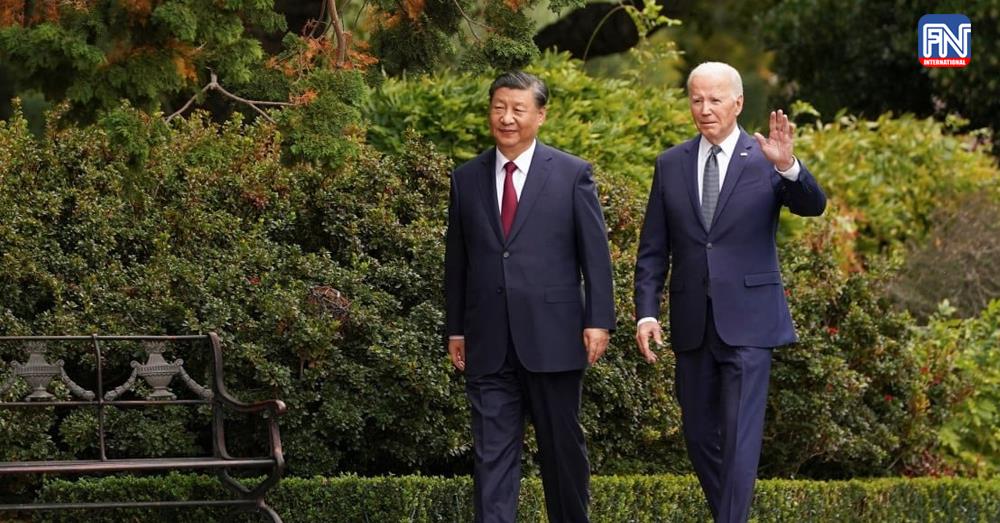SAN FRANCISCO, Nov. 16 (SCMP) – The US and China agreed to cooperate in fighting fentanyl and other narcotics, engage on managing artificial intelligence, resume military to military contacts and maintain the status quo on Taiwan, US President Joe Biden said after his first direct talks with Chinese leader Xi Jinping in a year.
“We’ve made some important progess,” on measures to stop the flow of fentanyl into the US, Biden said in a press briefing after the meeting, flanked by two American flags.
“What I’ve said since I’ve become president, what every previous president of late has said, that we maintain the agreement that there is a one China policy and that I’m not going to change that. And so that’s about the extent to which we discussed it.”
Asked what consequences would ensure if Beijing were to interfere with Taiwan’s upcoming elections, Biden said: “I didn’t expect any interference, any at all. We had that discussion as he was leaving.”
“I trust but verify as the old saying goes,” he added. “We’re in a competitive relationship, China and the United States, but my responsibility is to make this rational and manageable so it doesn’t result in conflict.”
Biden made his remarks shortly after the two leaders held a two-hour meeting and a follow on working lunch at a secluded estate just south of San Francisco.
Beijing confirmed that the two leaders agreed to work together on narcotics control and artificial intelligence and resume military-military communication.
But Beijing also underscored that its concerns, especially regarding Taiwan, must be respected.
“China has interests that must be safeguarded, principles that must be defended, and bottom lines that must be adhered to,” it said.
On an issue that the US pushed hard for, the two agreed to resume defence policy coordination talks, meetings under the military maritime consultative agreement, and theatre commander talks between the Pentagon and the People’s Liberation Army.
China severed the three channels – aimed at preventing an inadvertent crisis and providing tools to work it through if the worst happens – after then House speaker Nancy Pelosi visited self-governing Taiwan last August.
The Chinese readout included notably direct and pointed language on the relationship and where it ideally should be headed.
“China has no plans to surpass or replace the United States, and the United States should not harbour plans to suppress or contain China,” the statement said.
“Both sides should understand each other’s bottom-line principles, not toss around, stir up trouble, or cross boundaries, communicate more, have more dialogues, and discuss more, and handle differences and accidents calmly,” it added.
Beijing often points out this lapse – along with US inability to control demand – when it is accused of contributing to the American scourge.
A key problem, according to a 2021 report by the Congressional Research Service, is that the widely varied analogues don’t lend themselves to easy definitions, which is important for criminal prosecutions.
Any effort to label them under schedule 1 risks including some substances that are harmless while excluding others that are potentially dangerous.
That may change, however, as the US Drug Enforcement Administration reviews public feedback on a proposed rule to categorise several fentanyl-related substances as schedule I.

Photo from AP